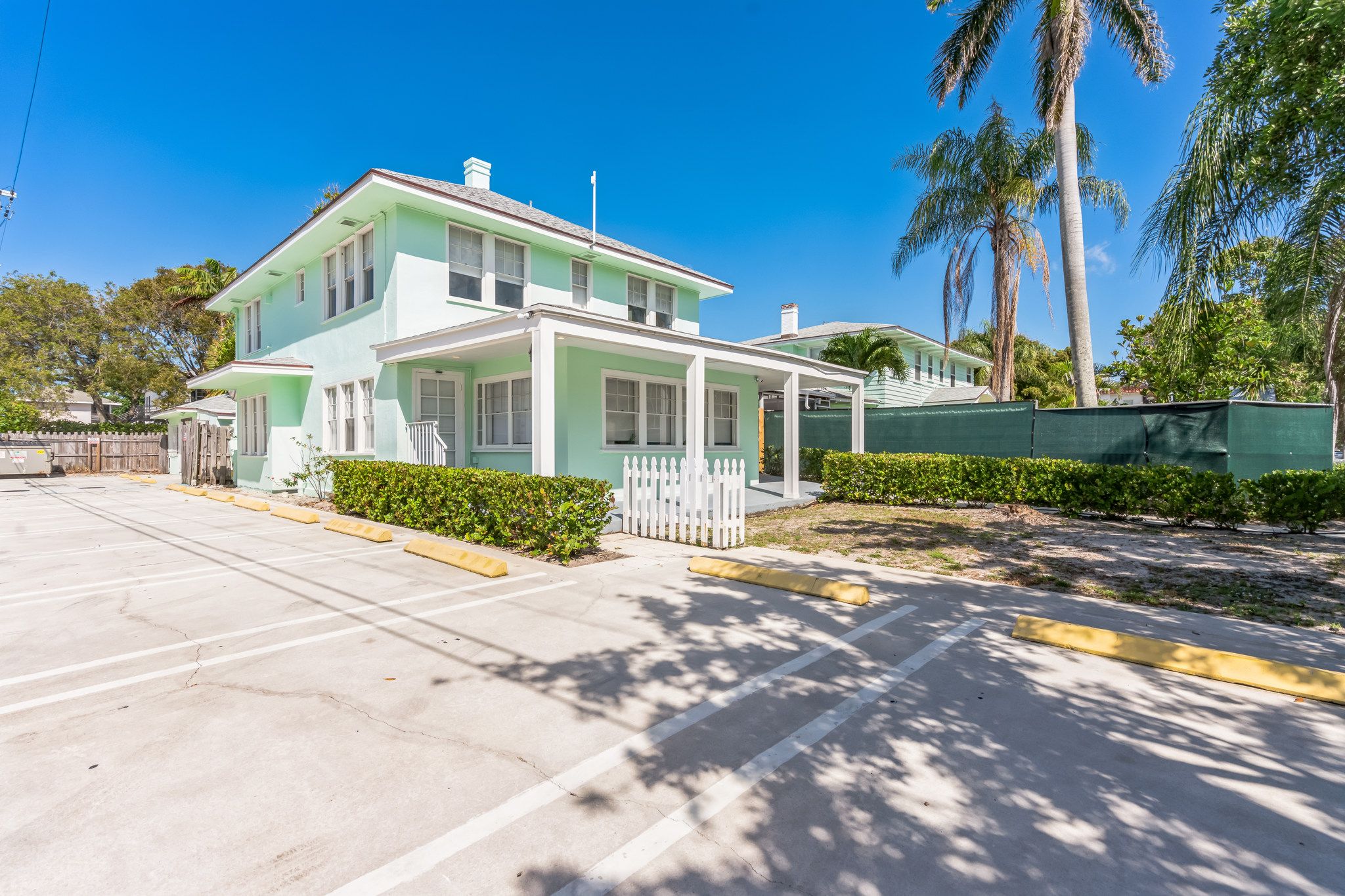Free Residential Treatment Assessment
Discover more about your mental health with a complimentary residential mental health treatment and assessment. We’ll work together to understand your needs and explore the best treatment paths tailored just for you. Whether it’s addressing issues like depression, anxiety, trauma, or other related mental health disorders, We Level Up Palm Beach Florida is here to support you every step of the way. Contact us today, and let’s start working on elevating your mental health together.
Find Hope and Healing through Residential Mental Health Treatment for Patients and Families
Finding the right support can make all the difference when navigating the challenging waters of mental health issues. For many patients and their families, inpatient mental health centers offer hope and a pathway to recovery. But what exactly are these facilities, and how do they benefit those who need them most? We’ll delve into the advantages, suitability, and admission processes of mental health inpatient treatment programs, providing valuable insights for those considering this option.
Mental Health Residential Treatment Centers
Mental health issues can be profoundly disruptive, affecting every aspect of a person’s life. For patients and their families, the journey to recovery often involves exploring various treatment options. Among these, mental health residential treatment centers stand out as comprehensive care providers, offering round-the-clock support and a structured environment conducive to healing.
What is Residential Treatment?
Definition and Overview
Residential treatment centers (RTCs) are specialized facilities that provide intensive care for individuals dealing with severe mental health issues. Unlike outpatient programs, these centers offer 24/7 support, ensuring patients receive continuous care.
Key Differences from Other Treatment Options
Outpatient therapy programs allow patients to live at home while attending local therapy sessions. Meanwhile, residential treatment facilities require patients to live on-site. This immersive environment enables more focused and consistent treatment, benefiting individuals with complex needs.
Types of Residential Programs
There are various types of residential programs, each tailored to specific conditions such as depression, anxiety, OCD, and other mental health disorders. Understanding these distinctions can help families choose the most appropriate care for their loved ones.
We Level Up Palm Beach FL Mental Health Residential Treatment Center
We Level Up Palm Beach FL Residential Treatment Center is an inpatient facility offering programs for various issues. Our treatment facilities are intensive, live-in environments where patients receive continuous monitoring and care from our professional staff.
Our approach is based on the belief that a supportive inpatient rehab setting is crucial for helping our clients feel comfortable and open to change. To this end, we provide a welcoming atmosphere in our center, located in the tranquil beachside community of South Florida. We serve many local areas, including West Palm Beach and welcome clients from across the USA who seek our expert behavioral health treatments.
Evidence from the SAMSHA indicates that residential programs can be highly effective, particularly for those with severe or multiple conditions. We aim to help our patients break free from the cycle of emotional instability to achieve lasting recovery.
Benefits of Residential Treatment
At our residential treatment center, we tailor our programs to fit each person’s unique needs, both during and after their time with us. We’re committed to providing evidence-based treatments to give our clients the best chance at overcoming substance use challenges.
- We offer around-the-clock support, ensuring clients receive personalized care for substance withdrawal symptoms whenever they need it. Sometimes, a change of scenery can be beneficial, providing a fresh perspective away from the stresses of daily life.
- Our therapy options go beyond traditional talk therapy, encompassing various approaches to address the mind, body, and spirit. With qualified professionals overseeing all medications and therapies, patients can trust in the quality of clinical care they receive.
Skip To:

- Additionally, we provide a thorough medical detox for alcohol or substance dependence, followed by a comprehensive aftercare program to support continued recovery. Our facility also offers access to innovative treatments not found elsewhere, along with frequent therapy sessions to kickstart the journey to healing.
Is a Residential Program Right for Me?
Intensive mental health programs offer vital support for individuals seeking to stabilize symptoms and develop effective strategies for managing life’s challenges.

Who is Suitable for Residential Treatment?
Severity of Condition
Residential mental health treatment is often recommended for people with severe and complex mental health issues that require intensive and continuous care. These programs are particularly beneficial for those who have not succeeded with outpatient treatment.
Need for Structured Environment
Some people may thrive in a structured setting where their daily activities are planned and supervised. This can be especially helpful for people with conditions such as OCD and severe depression, where routine and consistency are vital for progress.
Family Dynamics and Support
Family dynamics play a significant role in the suitability of residential treatment. For some patients, stepping away from their usual environment can provide the space to focus on recovery without external pressures or distractions.
Advantages of Residential Treatment Centers
Comprehensive Care
Among one of the most significant pros of residential treatment facilities is their comprehensive care. Patients receive access to a multi-disciplinary team of professionals, including psychiatrists, therapists, and nurses, all working together to create a personalized treatment plan.
Structured Environment
A structured environment is crucial for individuals struggling with mental health issues. Residential treatment facilities offer a highly organized setting where patients follow a daily schedule of therapy sessions, activities, and relaxation time. This environment can help create a sense of predictability leading to stability, which can be incredibly comforting for patients.
Peer Support
Another critical benefit of residential treatment programs is the opportunity for peer support. Patients live and interact with others living through similar problems. Peers can help foster a feeling of community and mutual understanding. Peer support can be a powerful influencing motivator and a source of comfort during treatment.
Admission Process
Initial Mental Health Assessment
The admission process generally starts with an initial assessment conducted by the treatment center’s clinical team. This assessment helps determine the patient’s specific needs and whether the facility can provide the appropriate level of care.
Planning and Coordination
Once the initial assessment is complete, the planning and coordination phase begins. This involves creating a tailored treatment plan that outlines the therapeutic approaches, duration of stay, and any additional support services required.
Admission and Orientation
Upon admission, patients undergo an orientation process to familiarize themselves with the facility, staff, and daily routine. This orientation helps ease the transition into the residential treatment program and sets the stage for a successful stay.
The Elements of Residential Treatment
These programs and services are designed to equip patients with the life skills and resources needed to maintain their recovery long after completing the program. Residential therapy programs usually include:
- Medically supported program via MAT (medication-assisted treatment).
- Behavioral Health Programs, including cognitive-behavioral therapy (CBT).
- Dual-Diagnosis Mental Health therapy for co-occurring conditions.
- Building skills and coping tools needed for daily life post-treatment.
- Family support and counseling.
- Alumni support program.
Types of Therapies Offered
Cognitive Behavioral Therapy (CBT)
Cognitive Behavioral Therapy (CBT) is a foundational therapy for many residential treatment programs. This evidence-based approach helps patients ascertain and learn to challenge negative thought patterns, to replace them with healthier ways of thinking and behaving.
Dialectical Behavior Therapy (DBT)
Dialectical Behavior Therapy (DBT) is particularly effective for people with borderline personality disorder and other cases involving emotional dysregulation. DBT focuses on building and improving mindfulness, distress tolerance, emotional regulation, and interpersonal skills.
Group Therapy
Group therapy allows clients to share experiences to help gain insights from others facing similar challenges. These sessions can foster a sense of camaraderie and reduce feelings of isolation.
Learn More About Residential Treatment
Seize control of your life now. Our compassionate mental health experts are here for you every step of the way. At We Level Up Palm Beach, FL, we’re proud of our residential treatment program, boasting state-of-the-art facilities and round-the-clock care from our dedicated medical team. We’re dedicated to your success and continue to support your recovery journey even after you’ve completed the program.
Dual Diagnosis Cases
Inpatient medical detox and residential primary substance use treatment may be available at our affiliated facility at We Level Up rehab facilities. For some secondary behavioral health treatment clients, medical detox and or substance abuse rehab may be required first. If you have a co-occurring severe substance use diagnosis, please consult with us prior to beginning inpatient mental health therapy. Treatment services may vary, thus, please call us to determine which treatment therapies are best suited for your needs.
Aftercare
Importance of Aftercare Outpatient Mental Health Therapy
Transition Planning
The transition from residential treatment back to everyday life is a critical phase of the recovery process. Effective transition planning ensures that patients have the support and resources needed to maintain their progress and prevent relapse.
Ongoing Support
Many residential treatment facilities offer ongoing support services, like outpatient programs and other support groups, to help patients continue their recovery journey after leaving the facility. This on-going support can be essential for long-term stability and success.
Family Involvement
Involving immediate family members in the aftercare can provide further layers of support for the patient. Family therapy and educational workshops can help families understand their loved one’s condition and learn how to provide effective support.
Common Concerns
Cost and Insurance
One of the primary concerns for many families considering residential treatment is the cost. It’s essential to explore all available options, including insurance benefits and financial assistance options, to make treatment more accessible.
Stigma and Misconceptions
There is often a stigma associated with seeking residential treatment for mental health issues. Addressing these misconceptions and emphasizing the benefits of intensive care can help reduce barriers to seeking help.
Success Rates
Understanding the success rates of residential treatment programs can provide reassurance to families and patients. Many facilities track outcomes and can provide data on the effectiveness of their programs.
Length of Treatment
The length of time spent in residential treatment varies depending on the individual needs and progress during treatment. While some may benefit from shorter stays, others may require longer-term care. It’s crucial to work closely with treatment providers to determine the most appropriate length of stay for each patient.
Aftercare and Relapse Prevention
Completing a residential treatment program is only the first step in a long-term recovery journey. Developing an aftercare plan and learning relapse prevention strategies are critical for maintaining progress after leaving the facility. Many treatment centers offer aftercare services and support groups to help individuals adjust to life outside of residential care.
Involvement of Family and Support System
Family involvement is often a crucial aspect of successful treatment. Including loved ones in therapy sessions and providing education on mental health can improve communication, understanding, and overall support for the individual in recovery. It’s vital for families to be involved in the treatment process and continue supporting their loved one even after they leave residential care.
We Level Up Palm Beach FL mental health residential treatment center provides a comprehensive, supportive, and structured environment for individuals facing severe mental health challenges. Our facilities offer numerous advantages, including access to multidisciplinary care, a stable environment, and peer support. For many patients and their families, residential treatment can be a transformative step towards recovery.
Understanding residential mental health programs’ suitability, benefits, and admission process can help families make informed decisions about seeking help. If you or a loved one is struggling with mental health issues, call us to explore residential treatment options. This can be your key to finding hope and healing.
Remember, mental health recovery is a journey; taking the first step toward getting the proper support can make all the difference. For more information and resources, please do not hesitate to call the We Level Up Palm Beach residential treatment centers and speak with an advocate who can help guide you.
Source:





